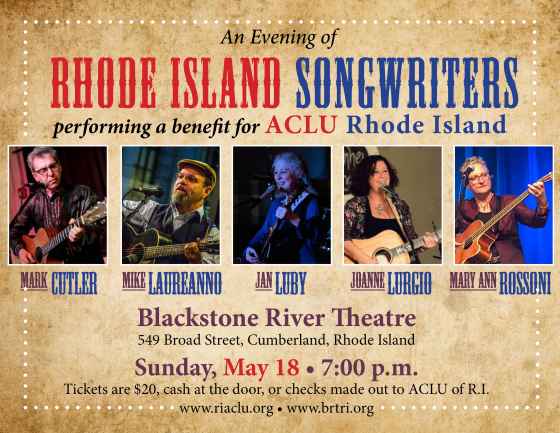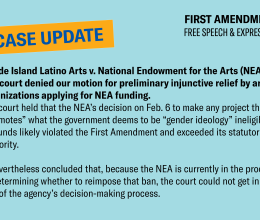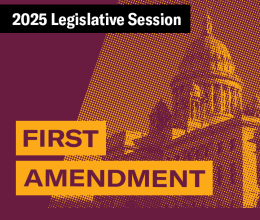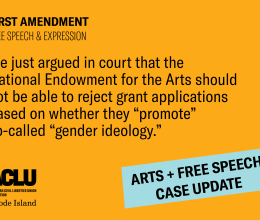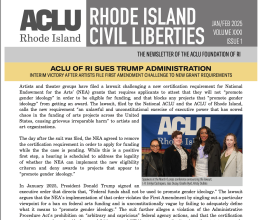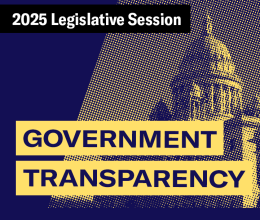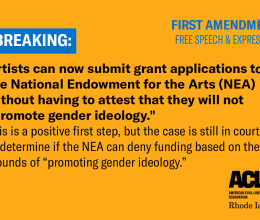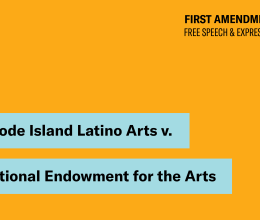Ruling in an ACLU lawsuit, U.S. District Court Judge William Smith struck down a state law that makes it a crime to circulate anonymous political literature, including unsigned newspaper editorials. The ACLU of Rhode Island sued over the legality of the statute earlier this year to halt the Town of Smithfield’s stated plans to enforce it. The statute, which carries a potential one-year prison sentence, bars the distribution of any anonymous political literature that relates to ballot questions or that criticizes a political candidate’s “personal character or political action.”
The U.S. Supreme Court had previously declared an almost identical Ohio statute unconstitutional, and called anonymous pamphleteering “an honorable tradition of advocacy and of dissent” designed to “protect unpopular individuals from retaliation - and their ideas from suppression - at the hand of an intolerant society.” That 1995 ruling cited a long history of anonymous political literature in this country, including the Federalist Papers.
Despite the U.S. Supreme Court ruling, last year the Smithfield Police Department arrested a political consultant for purportedly violating the state law. The Attorney General’s office later dismissed the charges, citing the Supreme Court case. In January, the ACLU wrote town officials to seek assurances that Smithfield police would no longer enforce the statute. The ACLU received no response; instead, news stories quoted town officials as calling the ACLU request “absolute nonsense” and stating that they intended to continue initiating criminal complaints under the statute.
This prompted the ACLU’s lawsuit, filed by ACLU of RI volunteer attorney Mark W. Freel. In a written filing with the court, the Attorney General’s office essentially agreed with the ACLU and acknowledged the unconstitutionality of the statute.
In a four-page decision issued today, Judge Smith called it “hard to imagine what the Rhode Island General Assembly was thinking when it passed this law . . . [but it] must be invalidated as a violation of the First Amendment.”
The plaintiff in the suit was Smithfield resident John Blakeslee, who has disseminated written political materials over the years that could be deemed to violate the statute’s requirements.
ACLU attorney Freel said today: “There is a long tradition of anonymous pamphleteering on matters of public interest in this country, and that right is embodied in the First Amendment to the U.S. Constitution. Today the court struck down a long-standing Rhode Island law that was entirely at odds with that right. It is a victory for free speech and expression.”
ACLU of RI executive director Steven Brown noted that in an attempt to mitigate the time and expense of defending the lawsuit, the House had passed a bill this session to repeal the statute, but the bill died in the Senate. As a result of the court decision, the defendants will pay $4,000 in attorneys’ fees in response to the successful challenge to the statute.
Although anonymous literature that criticizes candidates for public office is a criminal offense under the statute, literature that supports or praises a candidate is not. The court’s decision formally makes the statute legally unenforceable.

